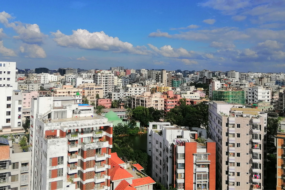The Covid-19 pandemic was no deterrent for the NCR real estate market, which remained vibrant and performed remarkably well in 2022. The region witnessed more interest from private equity players than its counterpart realty hotspot of MMR.Overall, the real estate sector garnered USD 3.4 billion 0f investment in 9M FY 23.
PE players, according to Anarock, invested USD 1,215 million into NCR during the first nine months of FY23, against USD 771 million in the corresponding period in the previous financial year. This was a 58% yearly jump in total PE inflows in the region.
NCR pipped other regions to the post. MMR witnessed a drop in total inflows during the period – from USD 574 million in 9M FY22 to USD 224 million in 9M FY23. There was a visible shift in the investor focus. Chennai, which accounted for a mere 1% share of total PE inflows in 9M FY22, saw its share rise to 8% in 9M FY23. As much as USD 268 million were invested in Chennai in 9M FY23, against USD 37 million in 9M FY22.Overall, Indian real estate attracted USD 3.4 billion of PE funding in 9M FY23, against USD 3.3 billion in the corresponding period in FY22 – an annual increase of 3%.
The top 10 deals alone accounted for 76% of the total value of PE investments in 9M FY23, compared to 72% in 9M FY22. The average deal ticket size rose from USD 82 million in 9M FY22 to USD 91 million in 9M FY23.
| Top 10 PE Deals in 9M FY23 | |||||
| Capital Provider | Recipient | Location | Asset Class | Deal Amount (USD Mn) | Debt or Equity |
| CPPIB | TRIL | Multiple | Commercial | 700 | Equity |
| Brookfield | Bharti Enterprises | NCR | Commercial | 660 | Equity |
| HDFC Capital Advisors | Shapoorji Pallonji | Multiple | Residential | 194 | Debt |
| Axis AMC | Tishman Speyer | Multiple | Commercial | 188 | Equity |
| CapitaLand Investment | CapitaLand Development | Chennai | Commercial | 177 | Equity |
| Bain Capital | TARC (Anant Raj) | NCR | Residential | 175 | Debt |
| Brookfield | IL&FS | MMR | Commercial | 137 | Equity |
| Brookfield | L&T Metro Rail
(Larson & Toubro) |
Hyderabad | Land | 129 | Equity |
| Credit Suisse | Adani Properties | Multiple | Mixed Use | 101 | Debt |
| Blackstone | Vertical Warehousing | NCR | Logistics & Warehousing | 88 | Equity |
Source: ANAROCK Capital
According to Shobhit Agarwal, MD & CEO – ANAROCK Capitals, with a rise in the hybrid work model and corporates expanding into tier 2 cities for their ease of working, demand and confidence in the commercial space has resurged. Confidence in the residential sector is also high currently, and will remain constant on the back of strong continued homeownership sentiment.”
In the retail segment, PE investments have remained subdued but are expected to gain momentum with physical shopping levels returning,. Thanks to the buoyant manufacturing sector, favourable government policies and the booming 3PL sector, high momentum is expected in the Industrial & Logistics sector in the future
Other Key Highlights
- Equity vs Debt Funding:PE investors prefer equity investment, which is visible from the fact that its share continues to be a healthy at 77%
- Asset Class-wise Funding:The commercial real estate sector has witnessed increased capital inflows via PE investments, accounting for the highest market share of 55% in 9M FY23 as compared to 33% in 9M FY22. This can be attributed to investors’ continued preference for Grade A office assets with quality tenants. As an aftermath of pandemic, demand in residential sector has resulted in it drawing the second-highest share of 23% in 9M FY23. The residential asset class has seen PE growing from 568 USD million in 9M FY22 to 772 USD million in 9M FY23.
- Domestic vs Foreign Funding:At 948 USD million , domestic investments increased to 61% of the total PE capital inflows in Indian real estate in 9M FY23, compared to 587 USD million in 9M FY22. Foreign investments have dropped to 71% in 9M FY23 compared to 78% in 9M FY22.
Going forward the future outlook for PE investments in real estate remains bright due to continupous strong desire for home ownership, hybrid work model and corporates’ foray into Tier 2 cities for growth and buoyant manufacturing, boom in 3PL sector and favourable government policies.



